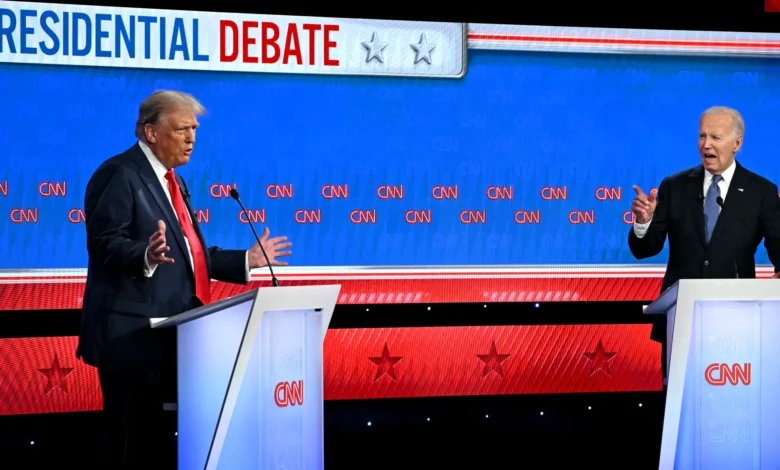Morals of a Nation Controls the World

Morals of a Nation Controls the World
The presidential debates between Donald Trump and Joe Biden were marked by intense confrontations and accusations, which often detracted from substantive policy discussions. These debates showcased a level of hostility and personal attacks that left many Americans disillusioned with the political process. The candidates’ focus on accusing each other of immorality and criminal behavior overshadowed any meaningful dialogue about their visions for the future of the United States.
During the debates, both Trump and Biden resorted to personal attacks, questioning each other’s integrity and the conduct of their families. Trump frequently brought up allegations against Biden’s son, Hunter Biden, accusing him of unethical business dealings in Ukraine and China. These accusations were intended to paint Biden as corrupt and compromised. Biden, on the other hand, attacked Trump for his handling of the COVID-19 pandemic, his tax returns, and his associations with white supremacist groups. He also criticized Trump’s family, particularly for their roles in the administration and business practices.
These exchanges were not only unproductive but also highlighted a troubling trend in modern political discourse: the shift from policy-driven debates to character assassination. Instead of presenting concrete plans to address pressing issues like healthcare, the economy, racial inequality, and climate change, both candidates seemed more interested in discrediting each other. This approach did little to inform or inspire voters, who were left with a spectacle of mutual recriminations rather than a clear understanding of how each candidate planned to lead the country.
The moral implications of such debates are significant. When leaders prioritize personal attacks over policy discussions, they contribute to a toxic political environment that undermines democratic principles. Accusations without substantial evidence erode public trust in political institutions and leaders. They also distract from the critical issues that need to be addressed, leaving citizens without a clear sense of how their concerns will be managed.
Moreover, the focus on personal and familial accusations perpetuates a cycle of negativity and division. It encourages a political culture where winning at any cost becomes the norm, and where ethical considerations are secondary to personal and partisan gain. This not only diminishes the dignity of the office but also sets a poor example for future generations of leaders and citizens.
The Trump-Biden debate is a stark reminder of the need for a return to civility and substance in political discourse. To truly serve the American people, candidates must engage in debates that prioritize policy over personality, facts over innuendo, and solutions over scapegoating. Only then can the political process regain its integrity and function as a means to address the real and pressing needs of the nation.
In conclusion, the Trump-Biden debates highlighted a troubling trend in American politics: the preference for personal attacks over meaningful policy discussion. Both candidates’ focus on accusing each other of immorality and criminal behavior did little to inform the public or offer a vision for the future. To restore trust and effectiveness in the political process, it is essential for leaders to engage in debates that are constructive, respectful, and focused on the issues that matter most to the American people.
Discover more from Gaza Never
Subscribe to get the latest posts sent to your email.





